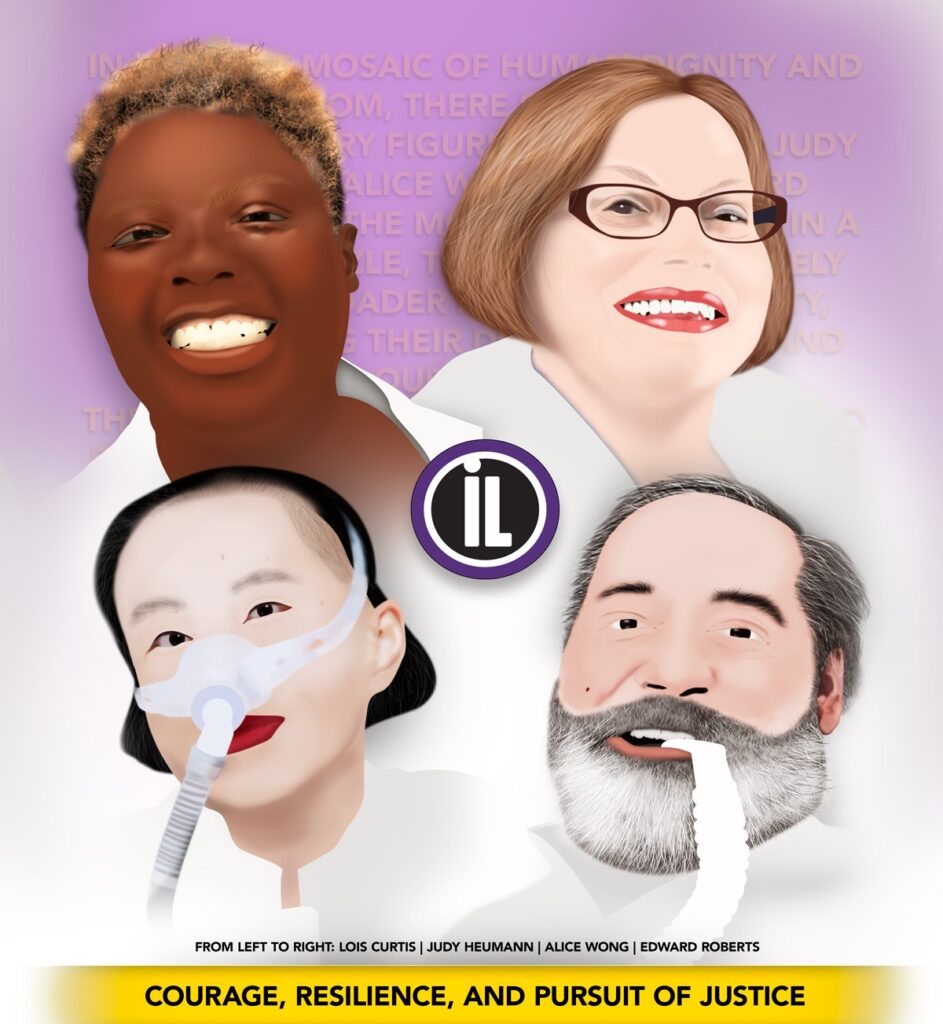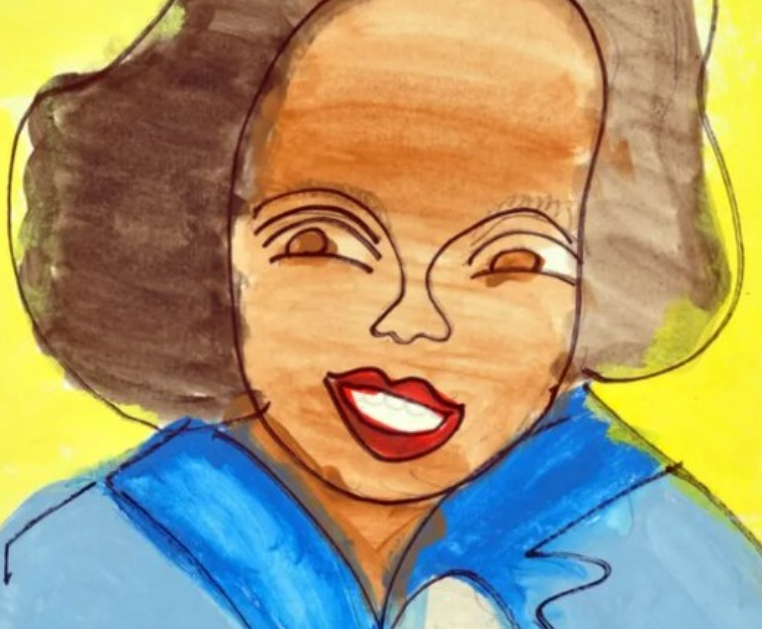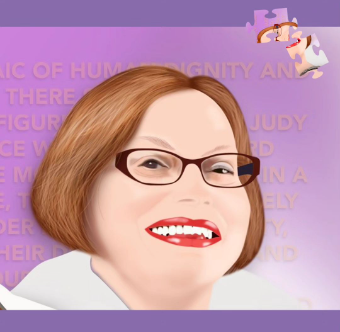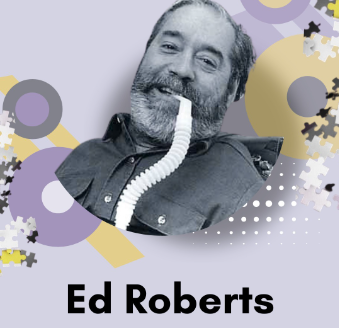
When we talk about the fight for equality, who comes to mind?
The rebels, the trailblazers, the revolutionaries? Those who stood up, refused to be stifled, demanded visibility, and fought for the rights of all people with disabilities. They raised their voices, sharing stories that demanded acknowledgment and action.
They raised their voices, sharing stories that demanded acknowledgment and action. These are the pioneers of disability rights, including Lois Curtis, Judy Heumann, Alice Wong, and Ed Roberts. Each of them played a crucial role in challenging societal norms, advocating for legislative change, and paving the way towards a more inclusive and just society for individuals with disabilities.
 Lois Curtis, pictured left, an influential artist and lifelong disability activist
Lois Curtis, pictured left, an influential artist and lifelong disability activist
Lois Curtis fought for equality and rights for people with disabilities leading to monumental change. Despite being capable of living in her community, she spent a significant portion of her childhood and early adulthood living in hospitals and institutions. Lois fought to get out and served as the lead plaintiff in the landmark Supreme Court case “Olmstead vs. L.C.” The court ruled in her favor, recognizing that warehousing people with disabilities in deficient mental institutions constituted discrimination under the Americans With Disabilities Act (ADA). The ruling required state and local governments receiving federal funds to comply with regulations that provided more community support systems for people with disabilities.
While Lois’ contribution to disability and civil rights history in America is immeasurable, she was also a self-taught visual artist known for her portraits that focus on joyful, bold colors and depict the value she placed on personal relationships in her life. Swipe to see some of her original pieces.
 Judy Huemann, pictured left, was instrumental in paving a brighter future for the disability rights movement.
Judy Huemann, pictured left, was instrumental in paving a brighter future for the disability rights movement.
In 1977, Judy was a leader in the historic 504 Sit-In in San Francisco that led to Section 504 of the Rehabilitation Act being signed into law. This progress helped carve the path for the Americans with Disabilities Act (ADA) to become a law later on. She also was a Senior Fellow @fordfoundation, where she produced the white paper Road Map for Inclusion examining how disabled Americans have been othered or excluded from representation in film and on television.
Judy was a founding member of the Berkeley Center for Independent Living @thecilofficial which was the first grassroots center in the US and helped to launch the Independent Living Movement, which we here at Independent Living Inc. are proudly part of.
Judy was a leader in advancing the inclusion of people with disabilities in the US and around the world.
 Alice Wong, pictured left, is a disability rights activist, writer and founder of the Disability Visibility Project, an online community dedicated to creating, sharing and amplifying disability media and culture.
Alice Wong, pictured left, is a disability rights activist, writer and founder of the Disability Visibility Project, an online community dedicated to creating, sharing and amplifying disability media and culture.
Her memoir “Year of the Tiger: An Activist’s Life” challenges the stigma around people with disabilities sharing her perspective of living a colorful life alongside disability—a full life—‘not overcoming’ a condition. She’s also co-partners in Access is Love, a campaign that aims to help build a world where accessibility is understood as an act of love instead of a burden.
 Ed Roberts, pictured left, known as the father of the independent living movement and a hero in disability rights, paved the way for people with physical disabilities to access higher education.
Ed Roberts, pictured left, known as the father of the independent living movement and a hero in disability rights, paved the way for people with physical disabilities to access higher education.
After contracting polio as a teen, Roberts became paralyzed requiring him to be in a wheelchair full-time and rely on an 800 lb iron lung respirator to assist him in breathing. After facing hardships and discrimination at the University of California in Berkeley, Roberts insisted on enrolling in classes and became the first student at the university to use a wheelchair. Later on he formed a group called the Rolling Quads, a group of students with disabilities who brought instrumental change to the campus making classrooms and dorms more accessible. The Rolling Quads evolved into the Physically Disabled Students Program, the USA’s first college organization for students with disabilities.
All this inspired Roberts to create a community in Berkeley where people with disabilities could live as independently as possible. This led to the birth of the Independent Living Movement in 1972 which still serves as our model today. Roberts would have been 85 today. His spirit and pioneering leadership lives on in independent living centers, like ours, throughout the country every day helping people reach their fullest potential.

